BEAUTY WITHOUT THE BAGGAGE with Lush
Jan 30, 2020
Recycling is good, but reducing is better. The beauty industry is facing a huge plastic problem and Lush is showing us the way forward with its new range of package-free “naked” make-up.
For the most part, we’re doing the best we can. There’s definitely an upward trend when it comes to recycling as our generation, more than any before it, is aware of the real threats of plastic pollution. The numbers are promising. According to figures published in February 2018 by the UK’s Department for Environment, Food and Rural Affairs (DEFRA), 71.4 per cent of the country’s packaging was either recycled or recovered, a number that exceeds EU targets to recycle or recover at least 60 per cent of packaging waste.
But packaging waste is still a big issue because recycling is only part of the equation. We might have given up on single-use plastic bags at the supermarket in favour of a cute tote bag and we might have stepped up our recycling game, but supermarket chains, the beauty industry and luxury goods manufacturers have not given up on packaging. Plastic permeates every aspect of the products we use. The bottles, the caps, the lids, the tubes – every part of our beauty routine has plastic packaging in it. In fact, despite the trumpeting that brands do about ways to tackle plastic waste, their plastic footprint has not diminished in any discernible way.
Some brands, such as Lush, have tackled this issue by quite literally thinking out of the box. The beauty brand’s co-founder, Rowena Bird, wondered about the possibility of Lush altogether eliminating packaging. Could Lush create solid, “naked” products that move away from packaging while continuing to serve its customers and offer them different choices? The answer is of course, yes, and the solution is two-fold.
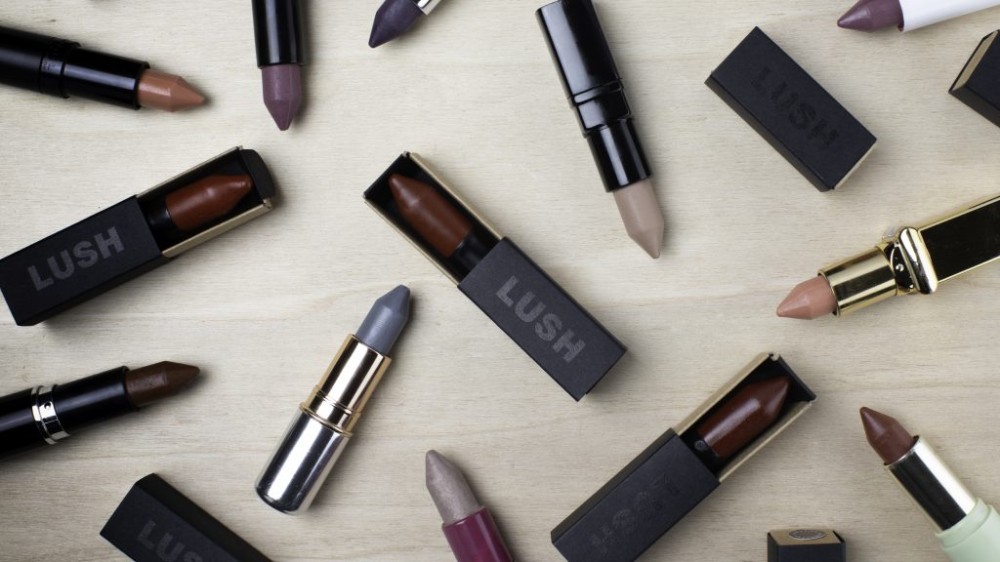
There have been beauty brands before Lush that have attempted to tackle the issue of plastic packaging before, coming up with solutions such as refillable cosmetics. However, Lush takes it one step further: its new make-up products will be as naked as possible.
This doesn’t mean the make-ups are 100 per cent package-free. But when they do require packaging, according to the brand, it’ll always be compostable, reusable, recyclable or refillable. Lush has always been a pioneer in the eco-friendly movement; the cosmetics company has long since abandoned animal testing and single-use plastics in favour of more eco-friendly solutions.
Walk past a Lush store and you’ll catch a glimpse of its colourful face-mask options, set out in large tubs that look deceptively like bowls of ice cream. The idea is that clients will return with their own pots and jars and fill them up with product. It’s an ideal situation that isn’t impossible, either; Bird says the practice is very much common in countries such as Norway.
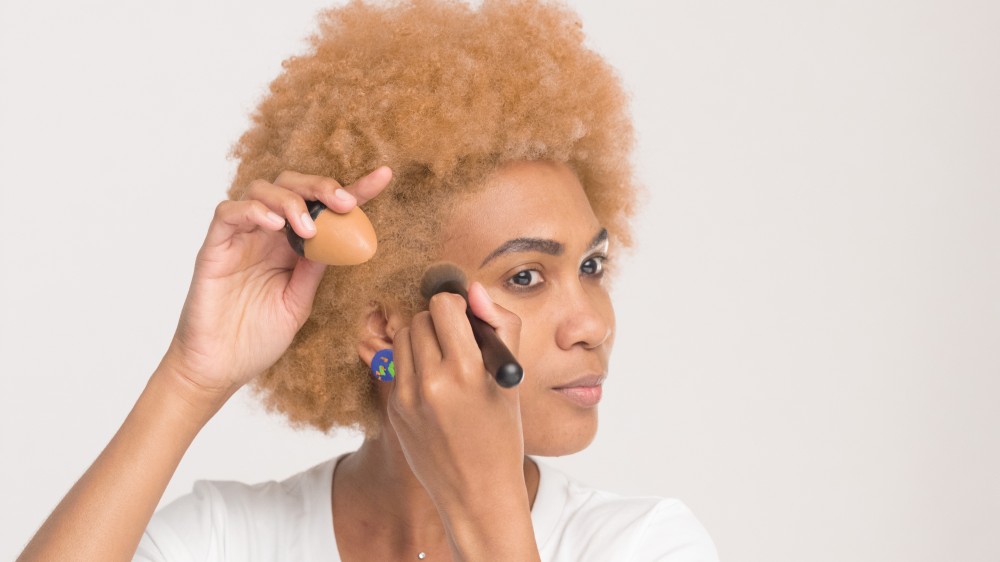
Slap Stick Foundation 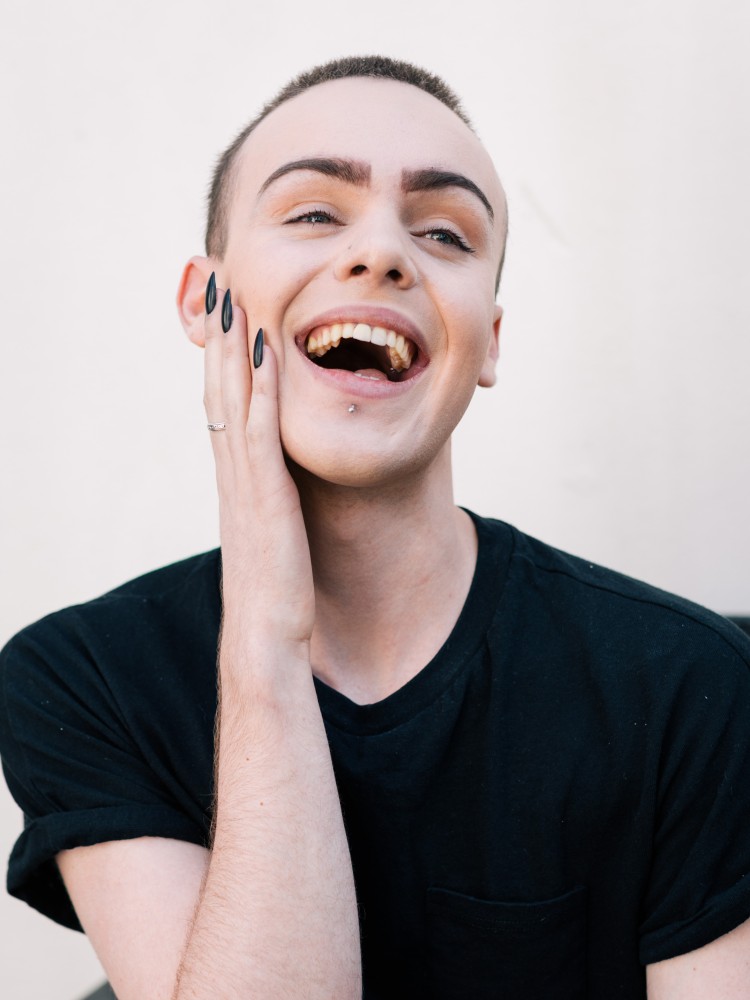
Slap Stick Foundation 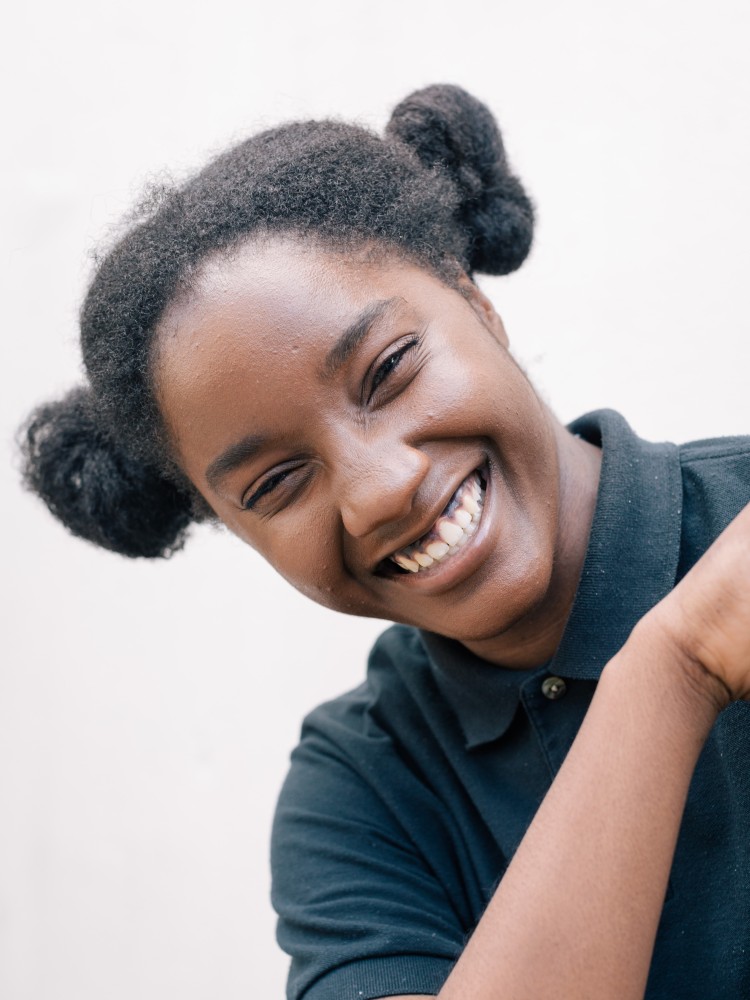
Slap Stick Foundation
“When I was in Norway, customers were really good at coming in with their Tupperware and then putting their product into it,” says Bird. “That’s lovely. Bring your paper bags back in to be filled, or – if you want a face mask – bring your pot back in and refuse to take our pot. That’s what I’d like to see people saying: ‘No, I don’t want your pot’ and emptying it out into their own.”
Lush’s new naked make-up line includes the Glow Stick, a solid highlighter stick that’s easy to use and gentle on the skin. It can be used to highlight or strobe, and the pointed tip makes it really easy to apply the product on the high points of the face. Mix two shades to create shadow and light on the face in a method called draping, or layer two colours for some extra glitz. The ends of the Glow Stick are dipped in peelable vegan wax to make application easy, ensuring that every last bit of product can and will be used. Another product we love is the Trix Stick, which can be used to conceal, contour and highlight the face. The multi-use concealer also comes in the same minimal plastic-free packaging.
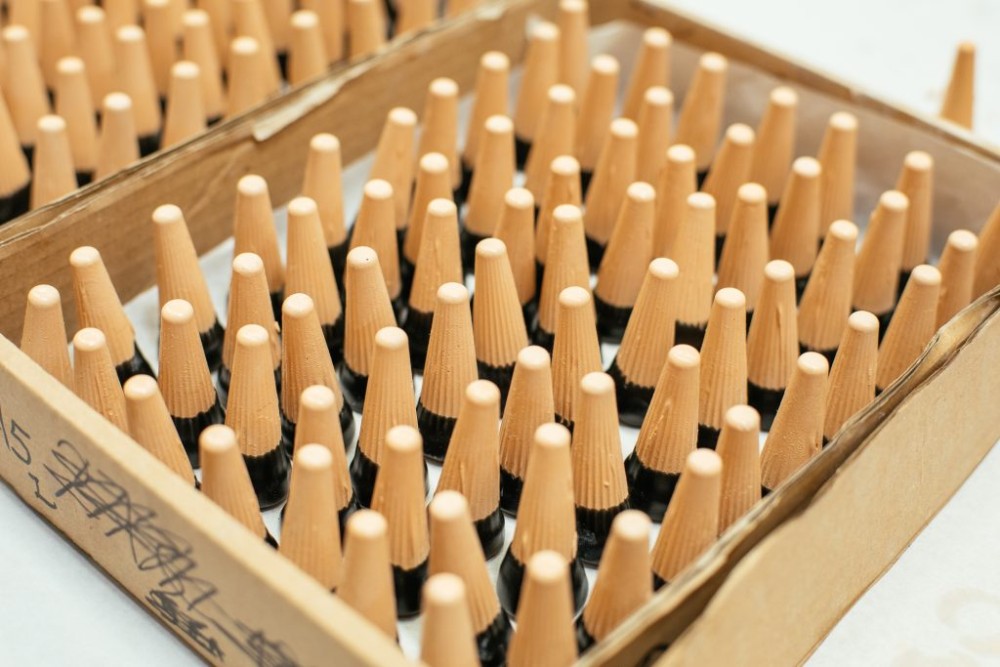
The good news doesn’t stop there. In producing the new range of make-up, Bird was adamant that the new products use a range of artisan ingredients such as shea butter, argan, moringa and aloe; at least one of these ingredients is in each final product and their production helps support women’s co-operatives or education. For example, the coconut oil is sourced from Nias, Indonesia, where a portion of the profits will go back into funding social amenities such as a local dentist and literacy classes for the women. The shea butter is hand-churned by the women of the Ojoba Collective, a fair-trade company based in Portland, Oregon that helps empower marginalised women in Ghana and give them a chance to lead better lives. A product that makes you feel good, both inside and out? Sign us up.

























